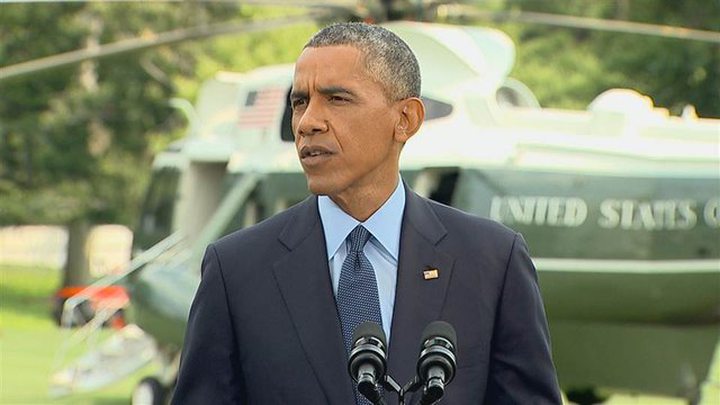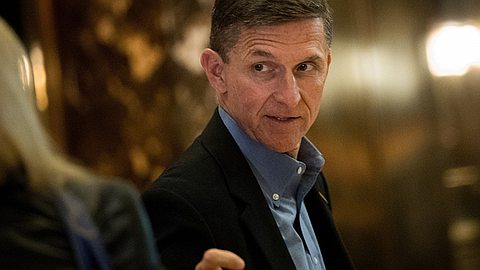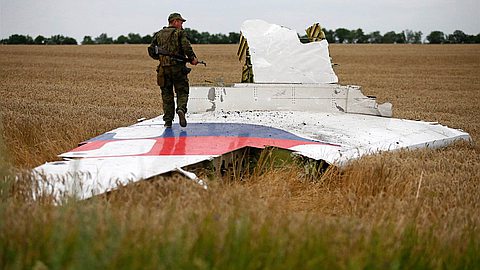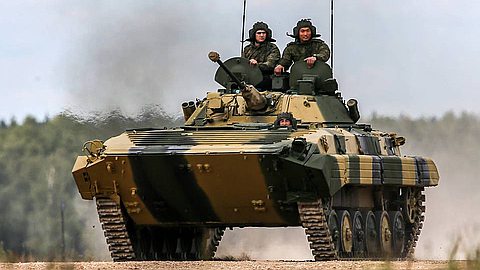Obama Announces Expanded Sanctions Against Russia as E.U. Aligns

President Obama immediately followed the European action by announcing a new round of U.S. measures that he said will affect “key sectors of the Russian economy.” Among other actions, he expanded the list of U.S.-sanctioned banks and defense companies.
The United States and Europe banned exports of technology for use in Russian deepwater, Arctic and shale oil exploration.
The U.S.-Europe combination, Obama said, will “have an even bigger bite” on Russia than a series of lesser measures intended to push the Russians back from their role in destabilizing Ukraine.
“It didn’t have to come to this. It does not have to be this way,” he said in a brief statement on the South Lawn of the White House. “There continues to be a better choice — the choice of de-escalation.” Obama called on President Vladimir Putin to stop supporting pro-Russian separatists in eastern Ukraine, to pull his troops back from the border, and to promote a negotiated settlement between the separatists and the Western-backed Ukraine government.
The new measures adopted in Brussels brought Europe to near-parity with the United States in imposing “Level 3” sanctions affecting broad sectors of the Russian economy. Many European nations, anxious about the implications for their economies, had resisted moving much beyond individual visa bans and asset freezes.
In Washington, senior administration officials attributed the change to U.S. resolve and Obama’s leadership. As fighting in eastern Ukraine has escalated in recent days, the United States has urged a tough response to reports of increased shipments of Russian heavy arms to the separatists and the firing of Russian artillery on Ukrainian positions across the border.
“Today is a reminder that the United States means what it says, and we will rally the international community in standing up for the rights and freedom” of democratically ruled nations, said one official who spoke in a briefing for reporters on the condition of anonymity under rules imposed by the White House.
But the most galvanizing event for Europe was clearly the July 17 downing of Malaysia Airlines Flight 17 in eastern Ukraine.
“The plane changed everything,” said Sophia Pugsley, a specialist in E.U.-Russia relations at the European Council on Foreign Relations. “And it’s really the German attitude that has changed. They’re the ones that are going to feel the pain in the parts of the economy that rely on Russia.”
Germany depends heavily on Russian energy supplies, with Russia providing up to a third of German gas. The other European heavyweights also have strong economic ties to Moscow, with Britain relying on Russian money to help fuel its thriving banking sector and France depending on Russian defense contracts. Southern European countries still struggling with recession feared economic setbacks.
The exact details of new E.U. sanctions will not be made public until they are published in the official E.U. journal, probably Thursday. Senior European diplomats said that much of their business with Russia probably will be preserved, with leaders negotiating carve-outs to protect their national interests.
The arms embargo, for example, applies to future contracts, rather than existing deals such as France’s $1.7 billion sale of warships to Russia. By limiting the energy restrictions to oil, the new sanctions appear to leave Gazprom, Russia’s state natural gas pipeline monopoly, unaffected. The limitation was “a get-out-of-jail-free card” for Gazprom, said Pavel Molchanov, oil analyst at the investment firm Raymond James.
But the overall scope of Tuesday’s announcement suggested that European patience with Russia has worn out.
The measures are “meant as a strong warning: illegal annexation of territory and deliberate destabilization of a neighboring sovereign country cannot be accepted in 21st-century Europe,” European Council President Herman Van Rompuy said in a statement announcing the moves.
Analysts say the restrictions could inflict serious damage on the already listing Russian economy, which relies heavily on Europe as a market for its oil and gas, as a source of financing, and as a supplier of components for its military. All three areas will take a hit under the measures announced Tuesday.
Asked whether a new Cold War had begun between Russia and the West, Obama said: “No, it’s not a new Cold War. What it is is a very specific issue related to Russian unwillingness to recognize that Ukraine can chart its own path.”
Officials in Moscow made no immediate response to the actions announced in Brussels and Washington. But in the past, Kremlin officials have accused the West of carrying out a vendetta against their country and of deliberately stoking tension in Ukraine to isolate Russia.
The new U.S. measures added three state-owned Russian banks — VBT Bank, the Bank of Moscow and the Russian Agricultural Bank — to those barred from any U.S. transactions or medium- or long-term financing. Two other state banks were placed under similar restrictions on July 16 — together they hold 30 percent of assets in the Russian banking sector, much of it in dollars, an administration official said.
Russia’s United Shipbuilding Corp. was added to eight previously announced defense firms prohibited from using the U.S. financial system or engaging in transactions with U.S. people.
The United States and Europe have banned the export of items, including software, for use in Russia’s still-developing deepwater, Arctic offshore and shale oil production capabilities.
The impact of the much-anticipated sanctions already was rippling across Europe on Tuesday, with companies rushing to pull back on their dealings with Russian partners. In London, the effect was being felt most acutely among financial firms, which are trying to limit their exposure to any segment of the Russian economy that might be caught up in the new measures.
The energy giant BP, which owns 20 percent of the oil firm Rosneft, Russia’s largest energy company, released a statement Tuesday saying that new sanctions could “have a material adverse impact on our relationship with and investment in Rosneft, our business and strategic objectives in Russia and our financial position and results of operations.”
The sanctions could cripple an oil exploration joint venture between Exxon Mobil and Rosneft in Russia’s Arctic offshore area. “We are assessing the impact,” said Alan T. Jeffers, an Exxon Mobil spokesman.
One of several senior officials at Tuesday’s White House briefing indicated that there probably will be a pause before any additional sanctions are imposed. “We want the impact . . . to sink in,” the official said, and to “test Russia’s willingness and capacity to take the path of de-escalation.”
DeYoung reported from Washington. Steven Mufson in Washington, Karla Adam in London and Michael Birnbaum in Moscow contributed to this report.





